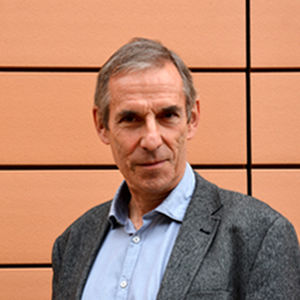The Chit from Matron: Work, and the Making of a Modernist Living
- Location
- Arts Lecture Room 3
- Dates
- Thursday 5 May 2022 (17:00-18:30)

Join Professor Steven Connor (University of Cambridge) for a wide-ranging talk on what it meant to be a modernist writer.
To be a modernist writer required a private income or a steady flow of what Celia in Beckett’s Murphy calls ‘small charitable sums’. Writers who made any kind of living from their writing – the despised Shaws, Wellses, Galsworthys, and Bennetts – seemed automatically to disqualify themselves as modernists. There are some exceptions: T. S. Eliot, declining to be rescued from Lloyds Bank through the intervention of Ezra Pound; Wallace Stevens’s career with the Hartford Accident and Indemnity Company; James Joyce enquiring into the possibility of an academic post in South Africa; Georges Bataille sedately holding down his day-job at the Bibliothèque Nationale. But these exceptions serve to highlight the definitional antinomy of art and professional life. I will, though, try in this talk to suggest that, far from representing Henry Carr’s ‘chit for life’, the figuring of work in modernism registers the antic, ontic shudder that was in fact beginning to pass through the whole domain of work, no longer calmly to be characterised in Bertrand Russell’s terms as ‘altering the position of matter at or near the earth’s surface relatively to other such matter’. The modernist phantasmatics of work are an advance intimation of the sickening conviction of the imaginary nature of all work that would gnaw through the following century.
Speaker biography
Steven Connor is Grace 2 Professor of English in the University of Cambridge and Director of Cambridge’s Centre for Research in Arts, Social Sciences and Humanities (CRASSH). He has published books on many topics, including Dickens, Beckett, Joyce, value, ventriloquism, skin, flies and air. His most recent books are Dream Machines (2017), The Madness of Knowledge: On Wisdom, Ignorance and Fantasies of Knowing (2019) and Giving Way: Thoughts on Unappreciated Dispositions (2019). A History of Asking, a study of petitionary practices from begging to wooing, is forthcoming from Open Humanities Press, and Seriously Though, a study of the stylistics of seriousness, from Princeton University Press. Having completed a book called The Phantasmatics of Work, he has begun an investigation of the libido of exaltations.